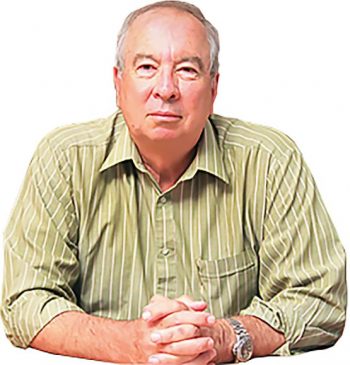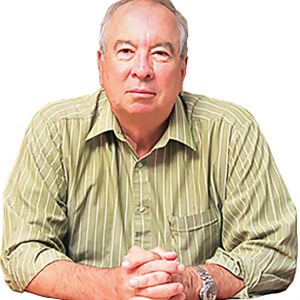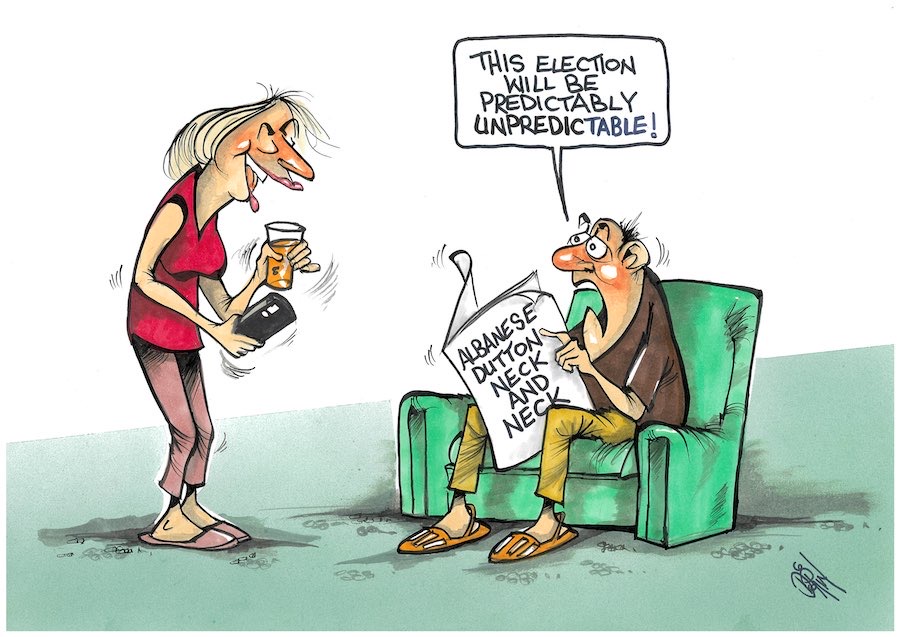
CLIVE WILLIAMS felt there was a need for the Australian Public Service to be more accountable and responsive to the needs of the public; hence this week’s Whimsy column – a user’s guide to APS terminology.
“Sir, to the best of my knowledge, I have no knowledge of any such knowledge.” – Sir Humphrey Appleby
Jargon is defined as “words or expressions used by a profession or group that are difficult for others to understand”.

Jargon in the Australian Public Service (APS) serves a dual purpose, acting as linguistic shorthand among professionals, while simultaneously creating a barrier for those outside the bureaucracy.
Defence has its own special jargon to create a barrier from the rest of the APS as well.
I felt there was a need for the APS to be more accountable and responsive to the needs of the public; hence this week’s column – a user’s guide to APS terminology.
Some of the more common examples of APS-speak, with public translations (and examples of use) are as follows:
Achieve gender equity = employ fewer men (as in “We plan to achieve gender equity in the next recruitment round”)
Adopt a holistic approach = get everyone involved (as in “We need to adopt a holistic approach to organising the next conference lunch”)
Adopt a whole-of-government approach = APS-wide approach (as in “We will adopt a whole-of-government approach to this issue”, but preferably not including politicians or Ministerial staffers).
At this point in time = now (as in “We are at this point in time considering a different approach ”)
Capacity building = backup systems (as in “Optus should have been investing more in capacity building”)
Courageous = foolhardy (as in “That was a courageous decision, Minister”)
Decisionmakers = heads of organisations (as in “The meeting comprised all the key decisionmakers”)
Meet the diversity target = employ fewer Caucasian men (as in “The department aims to meet the diversity target in 2024”)
Facilitate a paradigm shift = do things differently (as in “To meet our targets we need to facilitate a paradigm shift”)
Have a frank exchange of views = disagree (as in “We had a frank exchange of views at the meeting”)
In strategic alignment = in agreement (as in “We should seem to be in strategic alignment with what the minister wants”)
Impact = affect (as in “This decision will impact everyone”) (I suspect it’s crept into common usage because a lot of people don’t know the difference between effect and affect and don’t want to appear ignorant.)
Key stakeholders = interested parties as in “In Defence, we find it best to avoid having key stakeholders involved”)
Leverage synergies = co-operate (as in “To get the task done we will leverage synergies across departments”)
Metrics = data (as in “The metrics suggest your agency has been underperforming”)
Operationalise strategies for = start working on (as in “It’s time to operationalise strategies for a fast train to Canberra”)
Optimise resources = work with what we have (as in “We need to optimise resources to get the job done”)
Outcomes-based performance = actual results (as in “The APS does poorly in terms of outcomes-based performance”)
Proactively address challenges as they arise = anticipate problems (as in “We will proactively address challenges as they arise so that the project is not delayed”)
Reach out to = contact (as in “We will reach out to you for your contribution”)
Safe pair of hands = someone who can be relied upon not to make a decision (as in “Margot soon became a department head because the bosses regarded her as a safe pair of hands.”) (Subordinates hate working for people who won’t make decisions.)
Team members = staff ( as in “Team members will be asked to work back before they can take leave”)
To engage a broad range of stakeholders = consult affected people (as in “We should engage with a broad range of stakeholders before starting the project”)
To have a conversation about = discuss (as in “We should have a conversation about this issue”)
Town hall meeting = public meeting (as in “We should have a town hall meeting to make it appear that the public is on board”)
On a lighter note:
- Fred copped so many criticisms when he told people he worked for the Post Office that he now says he’s a mail escort.
- Branch head June was returning to the office when she ran into Ted leaving work 30 minutes early. She asked Ted why he wasn’t working until five o’clock. His reply? “I’m leaving 30 minutes early today to offset coming in 30 minutes late yesterday.”
Clive Williams is a Canberra columnist
Who can be trusted?
In a world of spin and confusion, there’s never been a more important time to support independent journalism in Canberra.
If you trust our work online and want to enforce the power of independent voices, I invite you to make a small contribution.
Every dollar of support is invested back into our journalism to help keep citynews.com.au strong and free.
Thank you,
Ian Meikle, editor









Leave a Reply